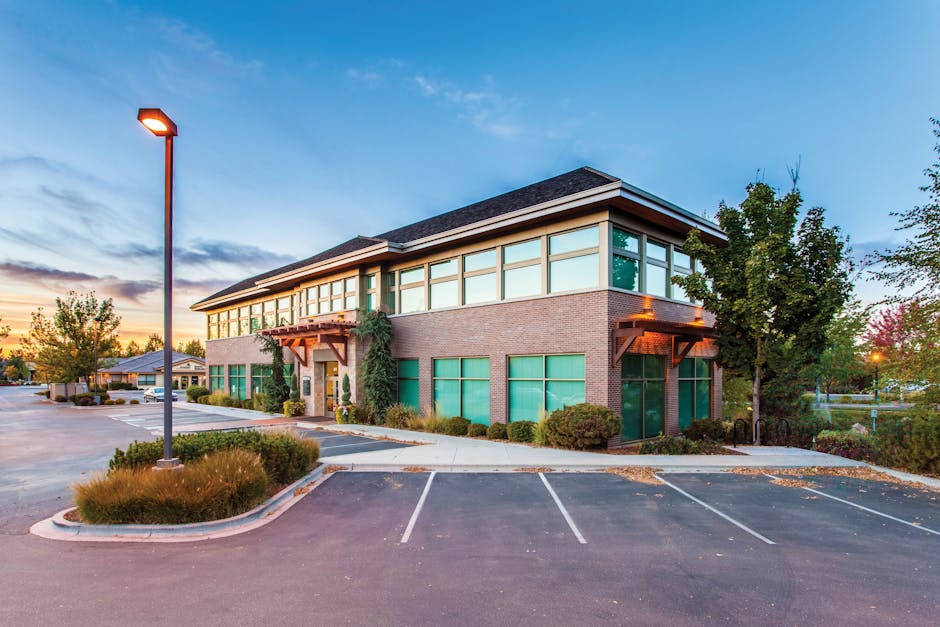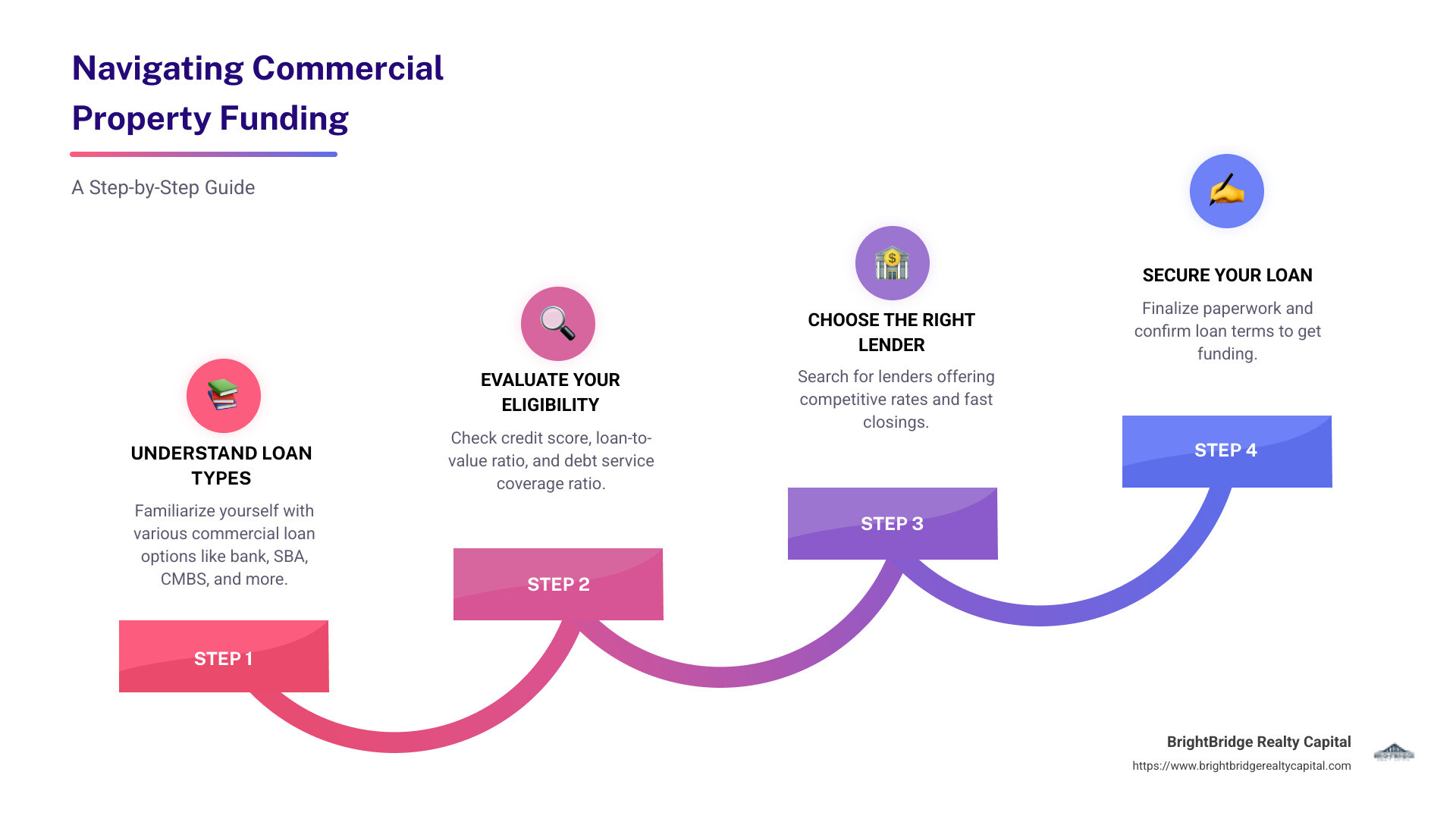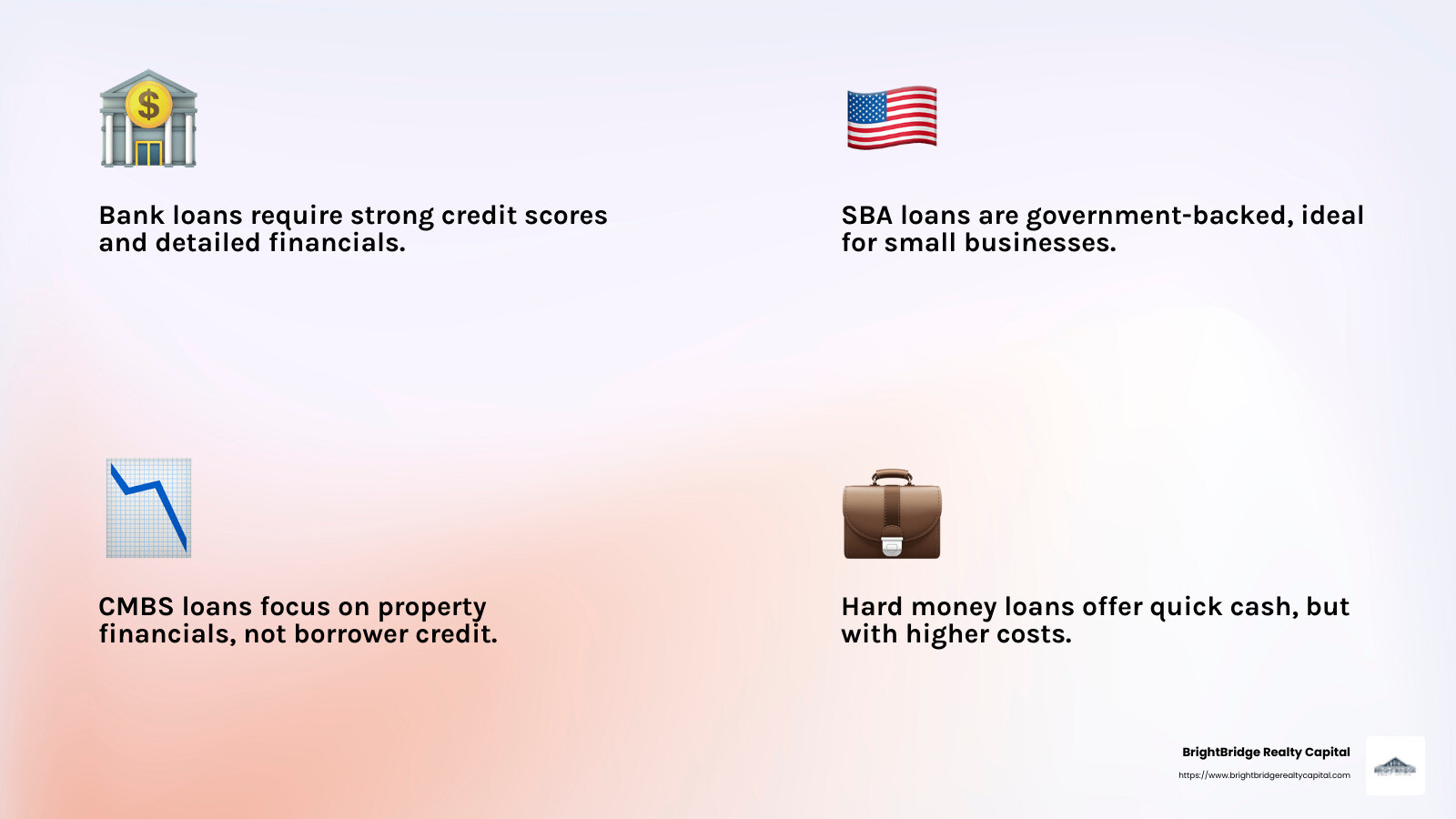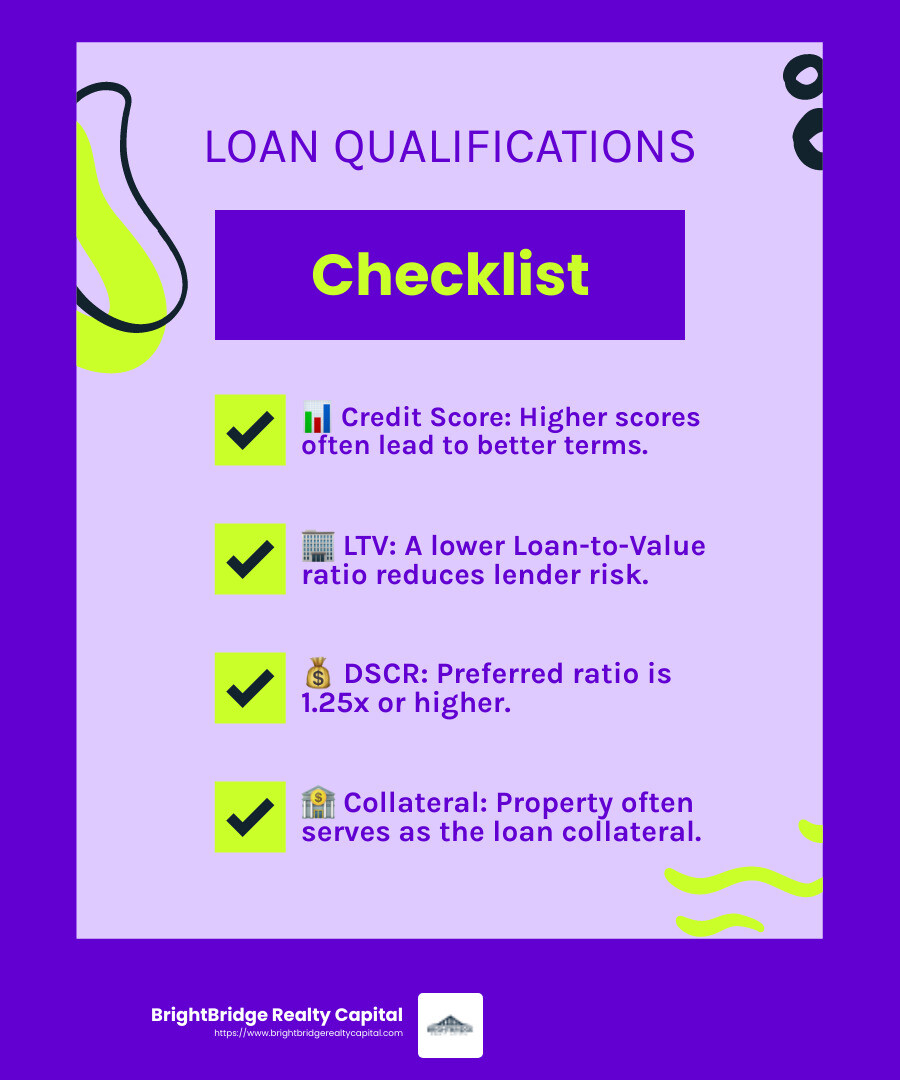The Ultimate Guide to Securing Commercial Property Funding

Commercial property funding is a key element for real estate investors looking to expand their portfolio or finance new projects quickly. The ability to secure reliable and competitive financing can make all the difference in capitalizing on the lucrative opportunities in commercial real estate.
Here's a quick snapshot of commercial property funding:
- Definition: Loans specifically for buying or improving commercial property.
- Importance: Vital for expanding investment portfolios and undertaking real estate development.
- Quick Solutions: Seek lenders offering fast closings and competitive rates to stay ahead in the market.
Navigating the complex world of commercial property funding can seem daunting, but it is essential for anyone serious about real estate investment. Whether you're a seasoned investor or just starting out, understanding the various funding options can open up new revenue streams and secure long-term wealth.

Commercial property funding glossary:
Understanding Commercial Property Funding
Commercial property funding is a specialized financial service designed to help investors purchase, develop, or improve commercial properties. Unlike residential loans, these loans cater to business-oriented real estate, such as office buildings, retail spaces, and industrial facilities.
Types of Commercial Property Funding
There are several types of loans available, each with its unique features and benefits:
Bank Loans: Traditional bank loans are a common choice for commercial real estate. These loans often have competitive interest rates and terms based on the borrower's creditworthiness. Banks typically require the property as collateral.
SBA Loans: Backed by the U.S. Small Business Administration, these loans are ideal for small businesses. The SBA 504 and SBA 7(a) loans are popular options for purchasing or refinancing owner-occupied commercial properties. SBA loans offer flexible terms and are often easier to qualify for than conventional bank loans.
CMBS Loans: Commercial Mortgage-Backed Securities (CMBS) loans are packaged and sold to investors. They offer fixed rates and are suitable for various property types. However, the process can be complex.
Debt Fund Loans: These loans are provided by private debt funds and offer more flexible terms than traditional bank loans. They are ideal for investors who need quick access to capital.
Hard Money Loans: Short-term loans secured by real estate, often used by investors needing fast funding. While interest rates are higher, they provide quick access to capital and are based on the property's value rather than the borrower's credit.
Commercial Real Estate Loans
Commercial real estate loans are the backbone of commercial property funding. They differ from residential mortgages in several ways:
Shorter Terms: Typically, commercial loans have terms ranging from 5 to 20 years, compared to the 30-year terms common in residential mortgages.
Higher Interest Rates: Due to the higher risk associated with commercial properties, interest rates are usually higher.
Loan-to-Value Ratios: LTV ratios are generally lower, meaning borrowers need a larger down payment.
Debt Service Coverage Ratio (DSCR): Lenders assess the property's ability to generate enough income to cover the loan payments. A higher DSCR indicates a safer investment.
Understanding these types of funding can help investors make informed decisions and choose the best financing option for their needs. With the right loan, investors can maximize their returns and grow their real estate portfolios effectively.
Types of Commercial Property Loans
When it comes to commercial property funding, understanding your loan options is crucial. Here's a breakdown of the main types:
Bank Loans
Bank loans are the traditional route for many commercial real estate investors. They come from commercial banks and credit unions, offering competitive interest rates. These loans are often used to purchase existing buildings, construct new ones, or renovate properties.
- Collateral Required: The property itself usually serves as collateral.
- Rates and Terms: Interest rates and terms depend on the borrower's creditworthiness and the property's specifics.
- Availability: With numerous banks and credit unions, options are plentiful, even for those with less-than-perfect credit.
SBA Loans
SBA loans, backed by the U.S. Small Business Administration, are custom for small businesses looking to acquire or refinance commercial properties. They are not suitable for multifamily investments but work well for office buildings, warehouses, and retail spaces.
- Types: The SBA 504 and 7(a) loans are the most common. They offer long terms and low down payments.
- Interest Rates: Typically variable and tied to the WSJ Prime Rate.
- Qualification: Easier than conventional bank loans, with lower credit score requirements.
CMBS Loans
CMBS loans (Commercial Mortgage-Backed Securities) are unique because they’re packaged and sold to investors. This means less focus on the borrower's credit and more on the property's financial strength.
- Fixed Rates: Generally come with fixed interest rates.
- Terms: Typically 5 to 10 years, with amortization up to 30 years.
- Market Availability: More common in larger markets, can be complex to steer.
Debt Fund Loans
Debt fund loans are offered by private debt funds and provide flexibility that traditional banks may not. They are ideal for scenarios like lease-up financing or property rehabilitation.
- Flexibility: Terms are often more adaptable to the borrower's needs.
- Quick Access: Fast funding solutions for urgent financial needs.
- Use Cases: Often used for multifamily properties or office asset rehabilitation.
Hard Money Loans
Hard money loans are a go-to for investors needing fast cash for purchase or renovation. They focus more on the property's value than the borrower's credit score.
- Short-Term: Usually have shorter terms and higher interest rates.
- Fast Access: Quick funding with less scrutiny on credit.
- Higher Costs: Come with higher fees and require a larger down payment.

Understanding these loan types helps investors choose the best financing for their needs. Whether it's a traditional bank loan or a quick hard money loan, each option has its own benefits and drawbacks. With the right choice, you can effectively grow your real estate portfolio.
How to Qualify for Commercial Property Funding
Qualifying for commercial property funding can seem daunting, but breaking it down into key criteria makes it more manageable. Let's explore what lenders typically look for:
Credit Score
Your credit score is a crucial factor in securing commercial property funding. While some loans, like CMBS, focus more on the property than your credit, most lenders still consider your score. A higher credit score can lead to better interest rates and terms.
Loan-to-Value Ratio (LTV)
The Loan-to-Value ratio is a measure of risk for lenders. It compares the loan amount to the property's value. For example, if a property is valued at $1 million and the lender offers a 70% LTV, you can borrow up to $700,000.
- Lower LTV: Indicates lower risk for the lender, often resulting in better loan terms.
- Higher LTV: Might require higher interest rates or additional guarantees.
Debt Service Coverage Ratio (DSCR)
The Debt Service Coverage Ratio is a key metric that evaluates if a property generates enough income to cover its debt obligations. A DSCR of 1.25x or higher is generally preferred by lenders.
- Formula: DSCR = Net Operating Income / Total Debt Service
- Importance: A higher DSCR shows that the property can comfortably meet its debt payments.
Collateral
Collateral is what you pledge to secure the loan. In commercial real estate, the property itself usually serves as the collateral. This means if you default, the lender can repossess the property.
- Non-Recourse Loans: These loans limit the lender's ability to claim personal assets beyond the property.
- Recourse Loans: Lenders can pursue other assets if the property doesn't cover the debt.

Meeting these criteria increases your chances of securing the right loan for your commercial property needs. Whether you're eyeing a bank loan, SBA loan, or another type, understanding these factors will help you steer the process with confidence.
Benefits of Commercial Property Funding
Securing commercial property funding comes with several key benefits that can help your business grow and thrive. Let's explore some of the most significant advantages:
Flexible Terms
One of the standout benefits of commercial property funding is the flexibility it offers. Loans can be customized to fit your business needs with variable or fixed interest rates and payment terms that can stretch up to 25 years. This flexibility allows you to choose a plan that aligns with your cash flow and investment strategy. For instance, construction loans often come with interest-only payments during the draw period, providing financial breathing room while your project is underway.
Tax Advantages
Commercial property funding also comes with potential tax benefits. When you own commercial real estate, you can often deduct mortgage interest, depreciation, maintenance costs, and property taxes from your taxable income. This can significantly reduce your tax burden. Additionally, depreciation and appreciation deductions can reflect the property's value changes over time, offering further tax relief.
Refinancing Options
Refinancing is another powerful tool within commercial property funding. By refinancing, you can reduce your monthly mortgage payments, improve cash flow, or modify your loan terms to better suit your business needs. This is particularly beneficial if interest rates have dropped since you originally secured your loan, or if your property has appreciated in value. Refinancing can provide the financial flexibility needed to invest further into your business or manage other expenses more effectively.
These benefits make commercial property funding a strategic choice for businesses looking to expand, renovate, or optimize their financial standing. By understanding and leveraging these advantages, you can make informed decisions that support your long-term business goals.
Frequently Asked Questions about Commercial Property Funding
What are typical terms for commercial real estate loans?
When considering commercial property funding, understanding loan terms is crucial. Typically, commercial real estate loans offer terms ranging from 5 to 30 years. Loan terms can vary significantly based on the type of loan and the lender's requirements.
Loan-to-Value (LTV) ratio is a key factor, often up to 75% for standard loans and can reach 85% for mezzanine and preferred equity financing. Higher LTV ratios mean less upfront cash for you, but they may come with higher interest rates.
Amortization schedules usually extend up to 25 or 30 years, even if the loan term is shorter. This means your monthly payments are calculated as if the loan will be paid off over this longer period, potentially lowering monthly payments.
How do SBA loans work for commercial properties?
SBA loans, backed by the U.S. Small Business Administration, are an attractive option for those seeking commercial property funding. There are three main types to consider:
SBA 504 Loans: Ideal for purchasing or refinancing fixed assets like real estate or equipment. These loans offer long-term, fixed-rate financing and can cover up to 90% of the project cost.
SBA 7(a) Loans: The most common SBA loan, used for a variety of purposes, including real estate acquisition. These loans offer flexible terms and can go up to $5 million.
SBA Express Loans: Designed for faster processing, these loans provide up to $500,000 with a quicker approval process, making them suitable for smaller, urgent needs.
Each SBA loan type has its own set of eligibility criteria and terms, so it's important to choose the one that aligns best with your business goals.
What is the difference between recourse and non-recourse loans?
Understanding the distinction between recourse and non-recourse loans is essential when securing commercial property funding.
Recourse Loans: These loans hold the borrower personally liable. If you default, the lender can seize not only the collateral but also your personal assets to recover the debt. While this may seem risky, recourse loans often come with more favorable terms and lower interest rates.
Non-Recourse Loans: These loans limit the lender's recovery to the collateral only. If you default, they can't pursue your personal assets. This offers more protection for borrowers but may come with stricter terms and higher interest rates.
Choosing between recourse and non-recourse loans depends on your risk tolerance and financial situation. Both have their pros and cons, so evaluate which aligns with your business strategy.
Conclusion
Securing commercial property funding can be a complex journey, but with the right partner, it becomes a smooth and efficient process. At BrightBridge Realty Capital, we pride ourselves on offering fast closings and competitive rates that cater to the unique needs of real estate investors.
Our team understands that time is of the essence. That's why we specialize in quick, flexible funding solutions designed to help you seize opportunities as they arise. Whether you're flipping properties, building from the ground up, or expanding a rental portfolio, we ensure that your funding process is hassle-free and swift.
Our fast closings—often completed within a week—set us apart in the industry. By eliminating intermediaries, we streamline the process, allowing you to focus on what truly matters: growing your investment.
Moreover, our competitive rates make it easier for you to achieve your financial goals without unnecessary strain. We offer direct lending solutions custom to your specific circumstances, ensuring you get the best deal possible.
If you're ready to take the next step in your real estate investment journey, explore our services and find how BrightBridge Realty Capital can support your goals with best speed and efficiency.


